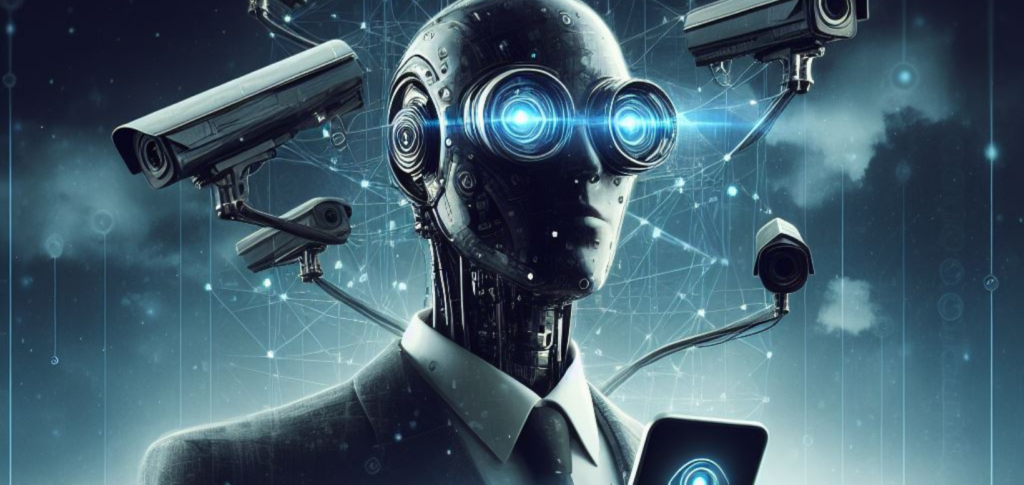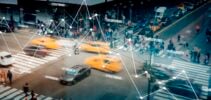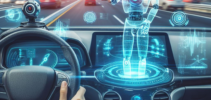A total of 4.200 cameras are deployed in public spaces, equivalent to one for every 81 residents. These are not the old closed circuit (CCTV) cameras. Some are equipped with thermal imaging and other sensors. They are connected to a command center and AI technology that can identify minor infractions — such as illegal parking or entering public parks after hours — as well as potentially suspicious activity, such as someone trying to access a school building.
ADVERTISING
Another system tested this year at the iconic Promeswim des Anglais de Nice used algorithms capable of identifying irregular vehicle and pedestrian movements in real time — something local authorities say could have quickly alerted police to the attacker who drove a 19-ton truck into a crowd on the seafront boulevard in 2016, killing 86 people and injuring hundreds of others.
“There are people who have declared war against us, and we cannot win the war using the weapons of peace,” said Mayor Christian Estrosi. “Artificial intelligence is the most protective weapon we have.”
More broadly, France is preparing to implement extensive algorithmic video surveillance as it prepares to host the 2024 Summer Olympics, including technologies that can detect sudden crowd movements, abandoned objects and someone lying on the ground. Authorities say this technology could be key to preventing an attack like the attack at the 1996 Summer Olympics in Atlanta.
ADVERTISING
But this embrace of futuristic policing is facing challenges in a region of the world that seeks to lead in AI regulation and is home to some of the most robust digital privacy protections.
AI surveillance in France
France is betting big on AI-assisted security for the Olympics. Hundreds of smart cameras in Paris and other areas will monitor crowds. A new law continues to prohibit facial recognition in most cases, but has expanded the legal applications of algorithmic video surveillance before, during and at least six months after the Games.
Many observers see this as a test that could be extended indefinitely if the technology is accepted by the public and shown to work. A survey carried out at the time of the law's adoption showed overwhelming support, with 89% of respondents supporting smart cameras in stadiums, 81% on public transport and 74% on public roads.
ADVERTISING
“We know this battle will be lost,” said Paul Cassia, a law professor and activist with the Paris-based Organization for the Defense of Constitutional Freedoms. “We all use our smartphones. Now there are cameras everywhere. People ask for these kinds of measures and if something happens they will say: 'It's your fault, you didn't do enough to protect us'.”
Estrosi, the mayor, argues that more freedom is essential. His city was allowed to experiment with facial recognition during Carnival in 2019, but the rules were so strict that the test could only be applied to volunteers passing through a specific area. Another experiment, involving biometric portals at a local high school, was deemed excessively intrusive by France's data protection agency.
The mayor is advocating for more comprehensive AI. Among other things, the city is looking to deploy experimental technology on buses and trams that would be able to detect the reddening of a passenger's face, directing officers to a possible health emergency or other source of stress.
ADVERTISING
According to the city, around 18% of all police cases are now solved with the help of its smart cameras. Estrosi insists that number could be much higher. “AI is everywhere except where it would actually be useful to us,” he said. “We need to use facial recognition to ensure the safety of my city. The software is ready and exists.”
Read also
* The text of this article was partially generated by artificial intelligence tools, state-of-the-art language models that assist in the preparation, review, translation and summarization of texts. Text entries were created by the Curto News and responses from AI tools were used to improve the final content.
It is important to highlight that AI tools are just tools, and the final responsibility for the published content lies with the Curto News. By using these tools responsibly and ethically, our objective is to expand communication possibilities and democratize access to quality information. 🤖







